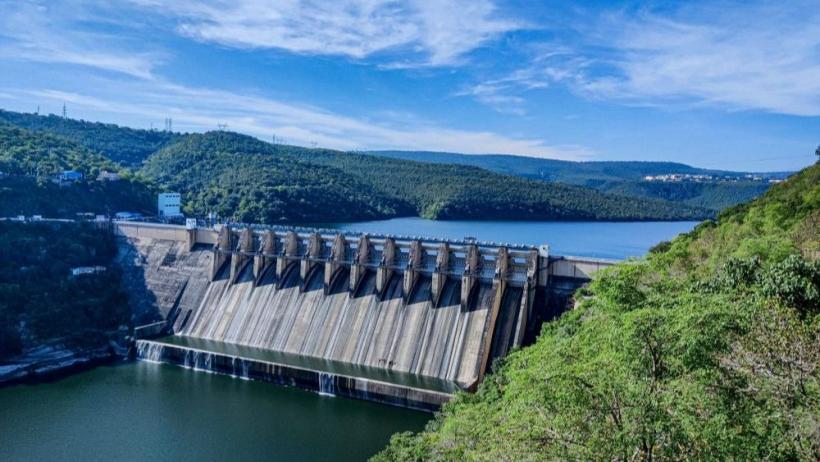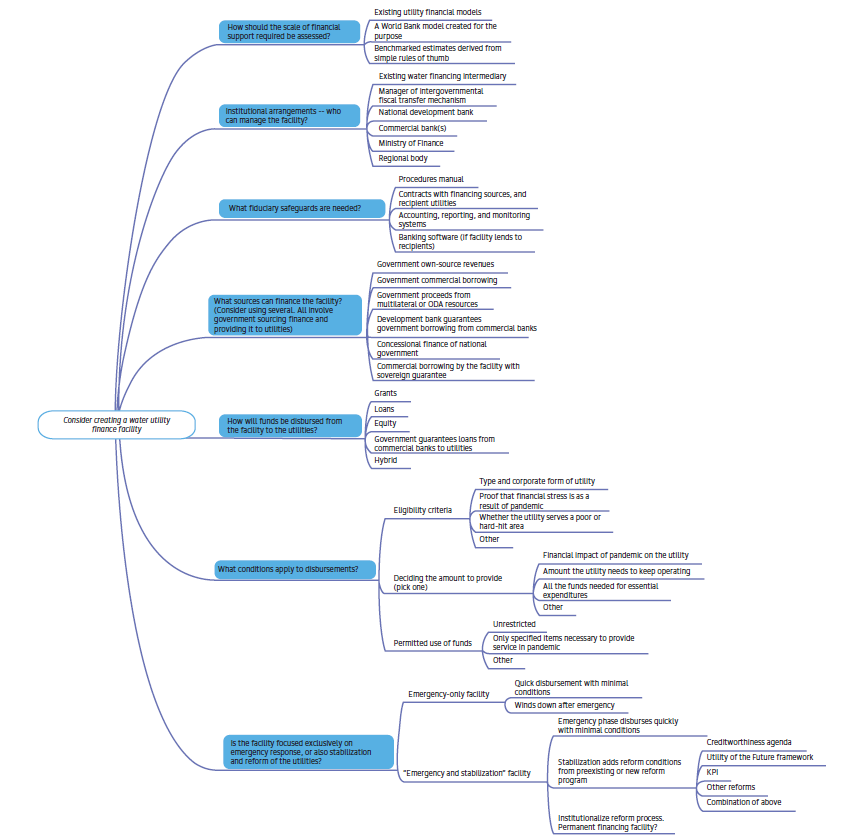Ensuring Access and Continuity to Water and Sanitation Services During the COVID Pandemic

The COVID-19 pandemic was a major global health and economic shock that underscored, amongst other things, the importance of the water sector to public health and the need for institutional, business, and community resilience. When the COVID-19 pandemic emerged, availability of clean water, handwashing with soap, and good hygiene practices were essential to arrest and prevent further spread of disease, alongside proper sanitation and wastewater treatment. As a result, water supply and sanitation (WSS) services were demonstrated to be a critical line of defense against the virus.
In response to this, government policy-makers, regulators, and utilities implemented several measures, initiatives, and actions to secure the continuation of WSS services for the population. These measures included: (i) approaches to ensure access to drinking water and basic sanitation, and increase awareness of good hygiene practices; (ii) bill payment assistance measures especially targeting the most vulnerable populations, including payment waivers and bill deferrals; (iii) direct support to WSS service providers to continue the provision of services while reducing the exposure of workers and customers to the virus; and (iv) financial support to WSS service providers to cover WSS service fees and increased costs. (For more information, see dashboard “Securing Access to Water & Sanitation Services in Times of COVID-19: Monitoring Responses in Latin America & the Caribbean”).

Photo Credit: Alexander Jauk, Pixabay
Despite these measures, the COVID-19 crisis has brought unexpected shocks to WSS service providers that could jeopardize the progress that the region has made to improve WSS services over the past decades. WSS service providers faced financial instability due to the changing nature of water consumption patterns and manpower restrictions. Water usage patterns underwent a profound shift during the COVID-19 pandemic. Residential consumption increased while non-residential consumption decreased. Since WSS service providers usually charge higher tariffs on non-residential customers, the changes in residential and non-residential water consumption affected the average water tariffs, resulting in lower average tariffs. Bill collection also decreased, due to households being unable to pay for services. At the same time, costs for many of these service providers increased due to pandemic-related operational costs, such as personal protective equipment (PPE) and workplace adjustments, as well as government-mandated service reforms, such as the expanded provision of public standpipes, water tankers, and handwashing facilities and mandates to delay or suspend disconnections.
All these changes in a short time resulted in the liquidity crunch for the WSS service providers in differing degrees.
In the longer-run, these impacts led to shortfalls in revenue collections, deferred investments for asset maintenance and the expansion of services. The COVID-19 crisis has highlighted the need to directly help water utilities build their financial resilience in the medium and long term to better prepare for future shocks.
Decision Tree

For better image clarity, please see the reference: Considerations for Financial Facilities to Support Water Utilities in the COVID-19 Crisis, Page 21
The World Bank’s Global Risk Financing Facility (GRiF) has been supporting analytical work by World Bank’s Water Global Practice to better assess the financial impact of the Covid-19 pandemic on WSS service providers in Latin America and identify mechanisms to improve service providers’ resilience not just to the current Covid-19 pandemic, but also to future external shocks beyond COVID-19, such as droughts and floods exacerbated by climate change. (BUILDING FINANCIAL RESILIENCE: Lessons Learned from the Early Impact of COVID-19 on Water and Sanitation Service Providers in Latin America).
Some of the key learnings from the report include the following:
- The COVID-19 pandemic negatively affected WSS service providers’ financial health in Latin America.
- WSS service providers overcame these impacts to secure service provision by using the funding allocated for maintenance and investments, but this could compromise their medium- and longer-term service sustainability.
- WSS service providers with weak capacities, low performance, and poor financial health suffered more from the negative financial impact caused by the pandemic. Furthermore, when the pandemic hit Latin America, very few water utilities had financial mechanisms that would have allowed them to mitigate the impacts of unexpected shocks.
- Modernizing the WSS service providers to enhance their financial viability and establishing the adequate policy and regulatory framework are important for building financial resilience in the sector.
The roll-out of the regional analysis was funded by the Global Water Security & Sanitation Partnership (GWSP) fund. Additionally, GRiF provided crucial support by financing two country-level analysis (Brazil and Colombia) which fed into the regional analysis. GRIF also provided inputs to the Water Global Practice Water Global Practice (Considerations for Financial Facilities to Support Water Utilities in the COVID-19 Crisis) which laid out the options and considerations in design of facilities to provide emergency financial support to water utilities in response to Covid-19 crisis and provides design considerations for creating a water utility finance facility. As a part of the recommendations, a decision tree (see above) was provided to assist in the key policy makers and guide them to expedite the decision-making process.
While crises such as the Covid-19 pandemic can be a genuine threat to water utilities, it can also be a springboard to their reforms. The present moment may be a rare opportunity to focus high-level political attention on the water sector given its importance for public health and its need for fiscal support.
Link to the reports here:
- Considerations for Financial Facilities to Support Water Utilities in the COVID-19 Crisis
- BUILDING FINANCIAL RESILIENCE: Lessons Learned from the Early Impact of COVID-19 on Water and Sanitation Service Providers in Latin America
- DASHBOARD - Securing Access to Water & Sanitation Services in Times of COVID-19: Monitoring Responses in Latin America & the Caribbean
Photo Credit: Tejj on Unsplash